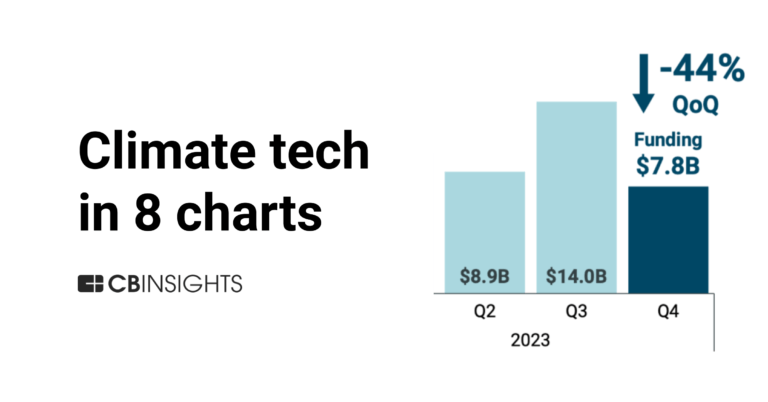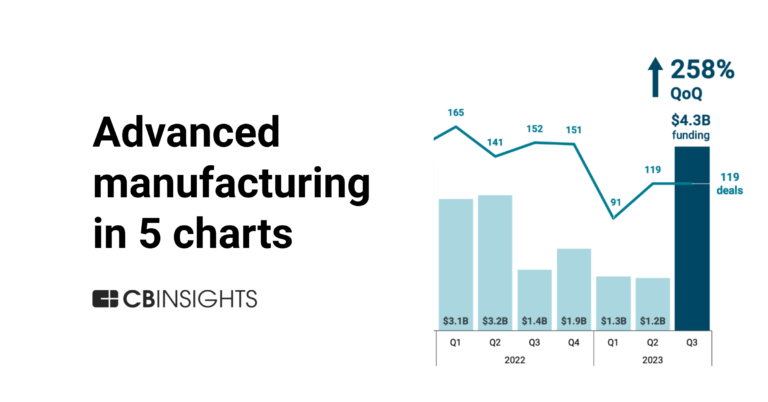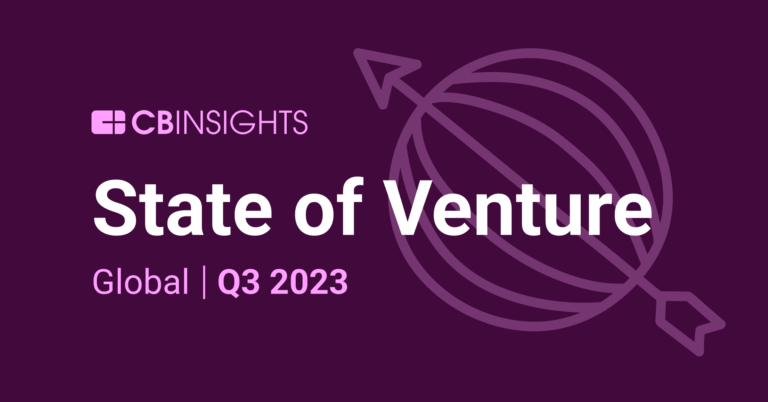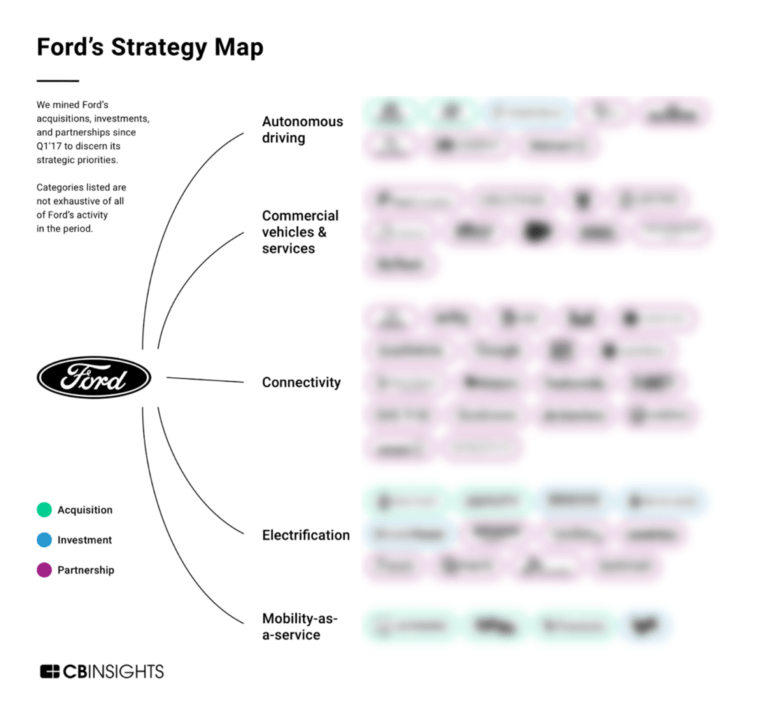
Redwood Materials
Founded Year
2017Stage
Series D | AliveTotal Raised
$3.991BValuation
$0000Last Raised
$1B | 2 yrs agoMosaic Score The Mosaic Score is an algorithm that measures the overall financial health and market potential of private companies.
-40 points in the past 30 days
About Redwood Materials
Redwood Materials specializes in creating a sustainable circular supply chain for lithium-ion batteries within the recycling and manufacturing industry. The company's main services include recycling used batteries, refining metals through hydrometallurgical processes, and remanufacturing anode and cathode components for new batteries. Redwood Materials primarily serves the battery manufacturing sector, providing domestically sourced materials to U.S. cell manufacturers. It was founded in 2017 and is based in Carson City, Nevada.
Loading...
ESPs containing Redwood Materials
The ESP matrix leverages data and analyst insight to identify and rank leading companies in a given technology landscape.
The electric vehicle (EV) battery recycling market is focused on safely and responsibly recycling used lithium-ion batteries and manufacturing scrap, while also providing a sustainable source of critical battery materials. The market aims to close the loop for the lithium-ion supply chain by recovering critical battery elements from end-of-life batteries or scrap and using them to make new cathode…
Redwood Materials named as Leader among 14 other companies, including ExxonMobil, Contemporary Amperex Technology, and Umicore.
Loading...
Research containing Redwood Materials
Get data-driven expert analysis from the CB Insights Intelligence Unit.
CB Insights Intelligence Analysts have mentioned Redwood Materials in 4 CB Insights research briefs, most recently on Mar 12, 2024.

Mar 12, 2024
Climate tech in 8 charts: 2023
Nov 9, 2023
Advanced manufacturing in 5 charts: Q3’23
Oct 12, 2023 report
State of Venture Q3’23 ReportExpert Collections containing Redwood Materials
Expert Collections are analyst-curated lists that highlight the companies you need to know in the most important technology spaces.
Redwood Materials is included in 5 Expert Collections, including Auto Tech.
Auto Tech
3,978 items
Companies working on automotive technology, which includes vehicle connectivity, autonomous driving technology, and electric vehicle technology. This includes EV manufacturers, autonomous driving developers, and companies supporting the rise of the software-defined vehicles.
Unicorns- Billion Dollar Startups
1,270 items
Energy Storage
5,350 items
Companies in the Energy Storage space, including those developing and manufacturing energy storage solutions such as lithium-ion batteries, solid-state batteries, and related software for battery management.
Advanced Manufacturing
4,097 items
Companies in the advanced manufacturing tech space, including companies focusing on technologies across R&D, mass production, or sustainability
Advanced Manufacturing 50
50 items
Redwood Materials Patents
Redwood Materials has filed 14 patents.
The 3 most popular patent topics include:
- electric vehicle battery manufacturers
- battery electric cars
- rechargeable batteries

Application Date | Grant Date | Title | Related Topics | Status |
|---|---|---|---|---|
8/21/2023 | 12/3/2024 | Battery electric vehicle manufacturers, Rechargeable batteries, Battery (electricity), Electric vehicle battery manufacturers, Automotive technologies | Grant |
Application Date | 8/21/2023 |
|---|---|
Grant Date | 12/3/2024 |
Title | |
Related Topics | Battery electric vehicle manufacturers, Rechargeable batteries, Battery (electricity), Electric vehicle battery manufacturers, Automotive technologies |
Status | Grant |
Latest Redwood Materials News
Mar 19, 2025
Chinese battery scientists developed a special technique to make battery recycling cheaper and way more efficient. Photo by: Volkswagen Comment Chinese researchers found a way to extract all the lithium from a dead battery for reuse. They discovered a special process to reduce costs, speed up recycling and prevent harmful byproducts from spilling into the environment. America's battery recycling industry is growing, but support from the current administration remains unclear. As electric vehicle adoption increases, millions of end-of-life batteries will be up for recycling by the early 2030s. Improper disposal of these batteries can contaminate the planet with harmful chemicals. That’s why researchers are racing to find solutions to maximize the recycling potential of EV batteries. Now, Chinese researchers have found a way to recycle nearly 100% of the lithium in a battery, The Independent first reported, citing a study from the German academic journal Angewandte Chemie . They used a special technique to extract 99.99% of the lithium, 97% of the nickel, 92% of the cobalt and 91% of the manganese from a used battery. Researchers said traditional extraction methods using amino acids cause safety issues and risk doing more environmental harm than good. Instead, they used an extraction technique called “neutral leaching.” It replaces the harsh chemicals of traditional recycling with a neutral solution, apparently making the process safer and more eco-friendly. Volkswagen Group Components Battery Recycling It also saves time, with lithium, nickel, cobalt and manganese extraction taking just 15 minutes. The researchers also used a simpler amino acid called “glycine” to extract lithium more efficiently and then used a special process to avoid any further chemical reactions. As a result, the possibility of harmful byproducts is minimized. The study also says this process reduces recycling cost. The study was conducted by multiple Chinese universities, including Central South University in Changsha, Guizhou Normal University and the National Engineering Research Center of Advanced Energy Storage Materials. This may be a lab experiment, but battery recycling is still an untapped resource that could be worth billions of dollars over the years. It can even make new EV batteries that use recycled content significantly cheaper. In fact, a clause in the Inflation Reduction Act qualifies batteries recycled in the U.S. as American-made, making them eligible for subsidies regardless of the country of origin. That’s part of the reason why the recycling industry in the U.S. is growing rapidly. In August, the U.S. Department Of Energy finalized a $475 million loan to battery recycling company Li-Cycle for a factory in upstate New York. The DOE also awarded a conditional loan of $2 billion to Redwood Materials , headed by former Tesla executive JB Straubel, for a plant in Nevada. And Ascend Elements also secured a $480 grant to build a factory in Kentucky. These are just a few examples, but dozens of other recycling plants are also in the pipeline. Even if funding for EVs is pulled back, tariffs are imposed on imports and tax credits vanish, the battery industry is poised for continued growth. That’s because even gas cars, the hybrid and plug-in hybrid kind, need batteries, in addition to dozens of other applications such as energy storage, robots and drones. Given the sheer strength of the market forces, the ripple effect is likely to benefit the EV industry as well. Have a tip? Contact the author: suvrat.kothari@insideevs.com Related Stories
Redwood Materials Frequently Asked Questions (FAQ)
When was Redwood Materials founded?
Redwood Materials was founded in 2017.
Where is Redwood Materials's headquarters?
Redwood Materials's headquarters is located at 2801 Lockheed Way, Carson City.
What is Redwood Materials's latest funding round?
Redwood Materials's latest funding round is Series D.
How much did Redwood Materials raise?
Redwood Materials raised a total of $3.991B.
Who are the investors of Redwood Materials?
Investors of Redwood Materials include Capricorn Investment Group, T. Rowe Price, Microsoft Climate Innovation Fund, Deepwater Asset Management, OMERS Infrastructure and 14 more.
Who are Redwood Materials's competitors?
Competitors of Redwood Materials include tozero and 7 more.
Loading...
Compare Redwood Materials to Competitors

Ascend Elements specializes in the production of advanced battery materials for the lithium-ion battery industry. The company offers a patented Hydro-to-Cathode process that recycles spent lithium-ion batteries into high-value materials for use in new electric vehicle (EV) batteries, enhancing sustainability within the industry. It primarily serves electric vehicle battery manufacturers and cathode manufacturers. Ascend Elements was formerly known as Battery Resourcers. The company was founded in 2015 and is based in Westborough, Massachusetts.

Green Li-Ion is a lithium-ion battery recycling technology company that focuses on producing modular hardware solutions for the battery recycling sector. The company's main offerings include converting spent batteries into cathode and anode materials that are ready for integration into the manufacturing processes of various types of batteries. It was founded in 2020 and is based in Singapore.
tozero recycles lithium-ion batteries within the environmental sustainability sector. The company recovers materials such as lithium, nickel, cobalt, manganese, and graphite from batteries and reintroduces materials into the supply chain. tozero serves emobility firms, electronic waste recyclers, battery manufacturers, and second-life battery firms. It was founded in 2022 and is based in Munich, Germany.
Redivivus specializes in lithium-ion battery recycling. It focuses on logistics and material recovery in the recycling industry. The company offers services that include neutralizing battery hazards, cryogenic freezing, shredding, and safe transportation of battery materials for recycling. Redivivus targets the recycling challenges faced by various sectors, providing solutions to safely and efficiently handle end-of-life batteries. It was founded in 2020 and is based in Colorado Springs, Colorado.

Princeton NuEnergy specializes in the recycling of lithium-ion batteries within the clean-technology industry. The company utilizes a process for rejuvenating cathode and anode materials from spent batteries, aiming to produce materials with a reduced environmental impact. Princeton NuEnergy's technology differs from traditional battery recycling methods. It was founded in 2019 and is based in Bordentown, New Jersey.
Battery Pollution Technologies specializes in creating a circular economy for the lithium-ion battery sector. The company offers services such as recycling of lithium-ion batteries, maximizing the recovery and reprocessing of critical battery minerals, and repurposing batteries for second-life applications. Battery Pollution Technologies primarily serves sectors that require battery recycling and repurposing, including the electric vehicle industry and energy storage solutions. Battery Pollution Technologies was formerly known as Battery Pollution. It was founded in 2021 and is based in Sydney, New South Wales.
Loading...

